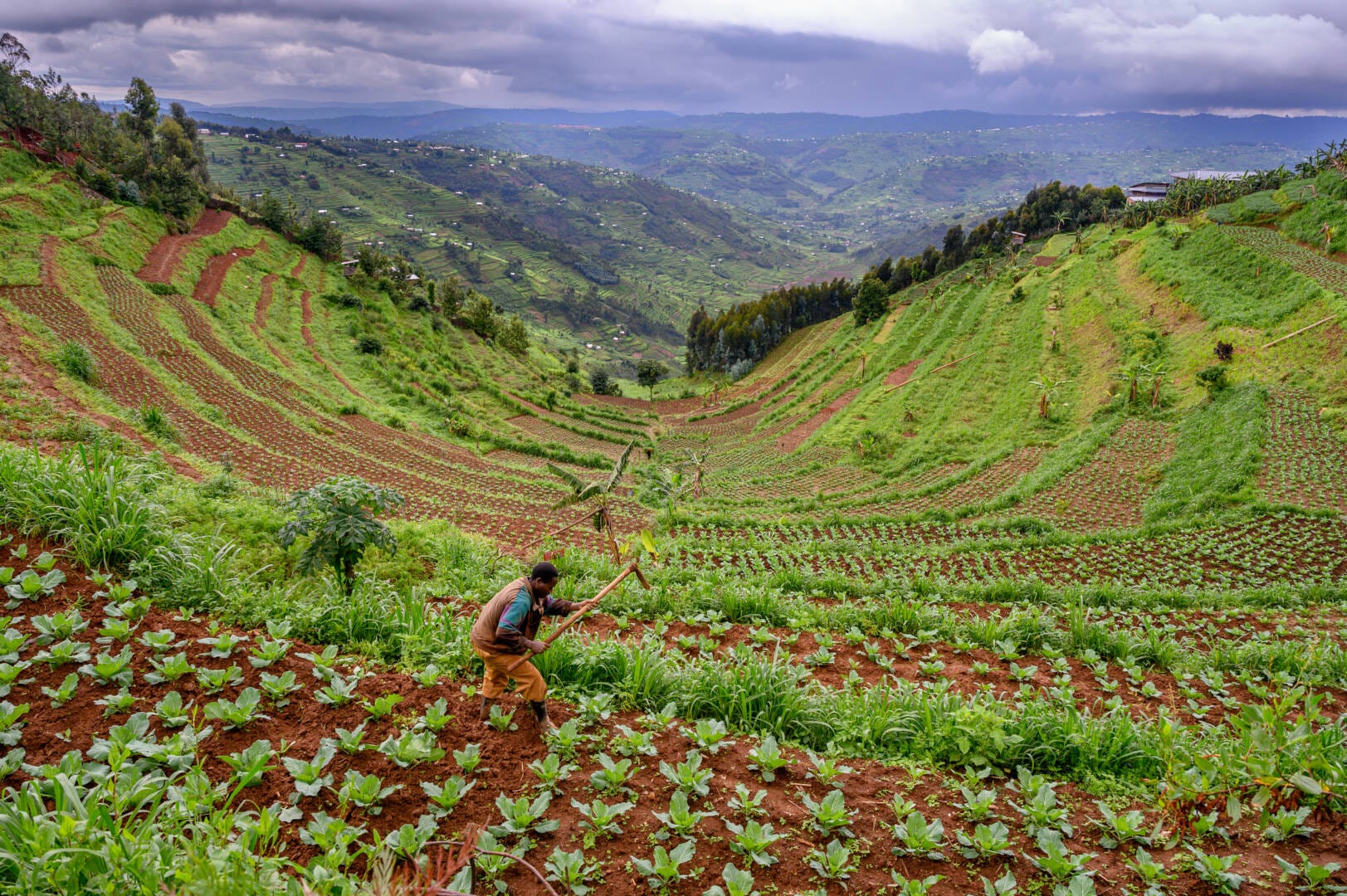
About the author: Tim Hartman is Associate Professor of Theology at Columbia Theological Seminary. He is the author of two books: Theology after Colonization: Kwame Bediako, Karl Barth, and the Future of Theological Reflection, and Kwame Bediako: African Theology for a World Christianity. He is an ordained minister in the Presbyterian Church (USA). His scholarly interests include contemporary Christian theologies worldwide, Christology, Lived Theology, Election/Predestination, antiracist theologies, ecclesiology, postcolonial mission, and the work of Karl Barth, Kwame Bediako, Dietrich Bonhoeffer, and James Cone.
The man who receives forgiveness does not cease to be the man whose past (and his present as it derives from his past) bears the stain of his sins. The act of the divine forgiveness is that God sees and knows this stain infinitely better than the man himself, and abhors it infinitely more than he does even in his deepest penitence--yet He does not take it into consideration. He overlooks it, He covers it, He passes it by. He puts it behind Him.
— Karl Barth, Church Dogmatics IV/11
This is a follow-up to my August 12, 2024 post: “Politicized Imagination: On Christian Identity, the 20th-Century Rwandan Genocide, and the Vices of ‘Christian’ Nationalism.” In the three months since my third visit to Rwanda, one question has continued to stick with me: when Rwandese survivors of the genocide against the Tutsi speak of “forgiveness,” what do they mean?
On our first evening, my fellow “Auburn Aegis Scholars” and I were at the Kigali Genocide Memorial, reflecting on our day. In the morning, we visited the Ntarama Genocide Memorial. In this church building, on April 15, 1994, 5000 people crowded into the building for safety and were massacred by Rwandan government soldiers and local militias. The site has been preserved with its blood-stained walls, abandoned clothing, bullet-ridden roof, and grenade-damaged entry gate. All who died were buried there with many of their bones, especially skulls and tibias, on display.
The Kigali Genocide Memorial is intended to help Rwandans—and the world—to remember the one hundred days of the genocide against the Tutsi in 1994 when nearly a million people died. 250,000 of the dead are buried in four mass graves very near to where my fellow scholars and I were talking that evening. I was in conversation with two colleagues from California, one a Jewish Rabbi and the other a Muslim Imam, and our discussion was less about our morning in Ntarama than our afternoon at a Reconciliation Village, where we heard testimonies from survivors and perpetrators who were now living together in community. One man spoke about how he had killed the husband and children of the woman sitting next to him. One woman spoke about how she had married the son of the man who killed her parents. Now, in the thirty years since the genocide against the Tutsi, perpetrators and victims were living side-by-side, sharing plots of land for farming and a well for water.
Forgiveness was a common theme, especially as survivors of the violence spoke of forgiving those who had killed their relatives. And, yet, as the three of us—a Christian theologian, a Rabbi, and an Imam—reflected that evening, something did not sit quite right. How could these victims forgive those who had killed their family members and then live with them, seeing them on a daily basis, and also publicly repeat their story to visitors from abroad? Many of the Reconciliation Village residents connected their comments about forgiveness to their Christian faith.
While forgiveness may play a more regular role in the life of a Christian as compared to a Muslim or a Jew, faith only seemed part of the answer. In short, the theological answer alone did not feel sufficient.
Returning home and continuing to reflect on that conversation, I came across the German political scientist Susanne Buckley-Zistel’s notion of “Chosen Amnesia,” which offers a pragmatic, sociological interpretation of the selective, intentional forgetting that many Rwandans strategically practice for their coexistence.2 In The Atlantic this month, best-selling author Clint Smith describes “chosen amnesia” as “a way for members of a community to coexist despite having had fundamentally different experiences during the genocide. All over Rwanda, every day, for 30 years, many people have chosen amnesia.”3 Certainly, the rhetoric of forgiveness and the unsettling questions of chosen amnesia bring to mind the maxim: “Forgive and Forget.” Yet, Buckley-Zistel’s incisive claim is that while “chosen amnesia” might be “essential for local coexistence, [the practice] bears the danger of not challenging the social cleavages that rendered the genocide possible in the first place, and so obstructing their transformation in the future.”4 Forgiveness must be more than forgetting; forgiveness involves repair. Unless there is agreement on what is broken, repair will prove elusive.
The first line of the quote from Karl Barth above helpfully describes the condition of the perpetrators of the genocide: “The man who receives forgiveness does not cease to be the man whose past (and his present as it derives from his past) bears the stain of his sins.”5 When God looks at a perpetrator, God does not ignore the harm he committed. The perpetrators living in the Reconciliation Village continue to bear the stains of their actions. While God justifies the sin (through Jesus Christ), the history is not erased. Forgiveness includes remembering rightly. For perpetrators, they are to confess their sinful acts, take responsibility for harmful actions, and work toward restitution. For survivors, forgiveness receives a confession, but does not entail forgetting the harm, or pretending that it never happened. Many of the survivors bear physical scars, such as machete wounds, and emotional trauma, including deep grief over lost relatives. Barth’s quote continues by naming how God sees through human sin to embrace the human person. While God can see humans as we truly are—simultaneously forgiven and sinners—how do we engage with those who have wronged us? And how does a society, a nation, seek to rebuild when some people have so grievously wronged others?
In the 2008 documentary, “As We Forgive,” narrated by Mia Farrow and directed by Laura Waters Hinson, the initial approaches of a perpetrator of the genocide are rebuffed by the woman whose family he killed. Eventually, as he begins to engage in reparative acts, such as helping her build a new house, a relationship between them also begins to be built. Perhaps for them, “forgiveness” looks like accepting the wrongs committed and moving on. For Immaculee Ilibagiza in Left to Tell: Discovering God Amidst the Rwandan Holocaust6 and Frida Gashumba in Frida: Chosen to Die, Destined to Live,7 both women survived the genocide by hiding (for Ilibagiza in a closet and for Gashumba under a pile of dead bodies). They have processed their trauma, in part, by forgiving those who killed their family members. They needed to forgive, regardless of whether or not their perpetrators asked for forgiveness. These paths to forgiveness differ, leaving Buckley-Zistel to wonder if “despite their public performance, in their hearts pain still lingers.”8
In April this year, the Kinyarwanda word, Kwibuka, meaning “to remember,” was plastered around Rwanda, especially Kigali, the capital city. Banners read “Kwibuka 30: Remember, Unite, Renew” to encourage all Rwandans to look forward by remembering the past. Yet, how much of the past, or what version of the past is to be remembered, are both debated. There has been a governmental push for forgiveness, leading some to wonder how genuine the forgiveness has been. The acts of chosen amnesia–corporately and individually–willfully forget the causes that lead to atrocities in 1994 as a coping mechanism.9 Chosen amnesia is not the same as forgiveness. Chosen amnesia runs the risks of cheap grace. Dietrich Bonhoeffer famously wrote, “Cheap grace means justification of sin but not of the sinner.”10 Chosen amnesia forgets the decades of tension that preceded the events of April-June 1994 in order to absolve the perpetrators (who confess) so that local communities may function today.
For the majority of us who have not personally experienced a genocide: do we also practice “chosen amnesia” under the guise of forgiveness in ways that obscure the causes of (structural) sin, thus preventing its real transformation? Certainly, Clint Smith hints that in the United States, contemporary race relations (especially between Blacks and whites) are hindered by a reluctance to tell the whole truth about the past—slavery, Jim Crow, and the founding of this nation.
Forgiveness—individually and nationally—is based on honest confession of harmful acts and the conditions that lead to the harm. Repairing harm then necessitates restitution and systemic change.
Karl Barth, Church Dogmatics IV/1, trans. ed. G.W. Bromiley and T.F. Torrance (T&T Clark, 2009) 597.
Susanne Buckley-Zistel, “Remembering to Forget: Chosen Amnesia as a Strategy for Local Coexistence in Post-Genocide Rwanda,” Africa: Journal of the International African Institute 76, no. 2 (2006): 131–50.
Clint Smith, “Is Forgiveness Possible?: Thirty Years after the Genocide in Rwanda,” The Atlantic, November 2024, 42.
Buckley-Zistel, “Remembering to Forget,” 131.
Barth, Church Dogmatics IV/1, 597.
Immaculee Ilibagiza, Left to Tell: Discovering God Amidst the Rwandan Holocaust (Hay House, 2014).
Frida Gashumba, Frida: Chosen to Die, Destined to Live (Sovereign World, 2007).
Buckley-Zistel, “Remembering to Forget,” 143.
Buckley-Zistel, “Remembering to Forget,” 141-146.
Dietrich Bonhoeffer, Discipleship, ed. Geoffrey B. Kelly and John D. Godsey; trans. Barbara Green and Reinhard Krauss, Dietrich Bonhoeffer Works Edition 4 (Fortress Press, 2003), 43.






